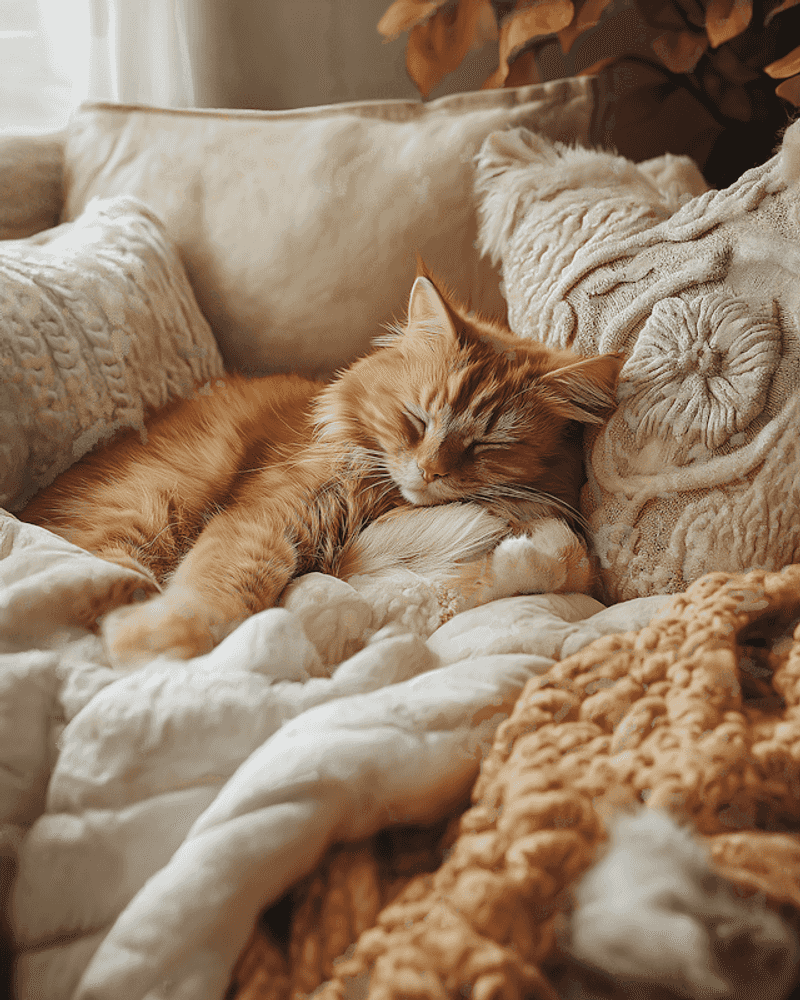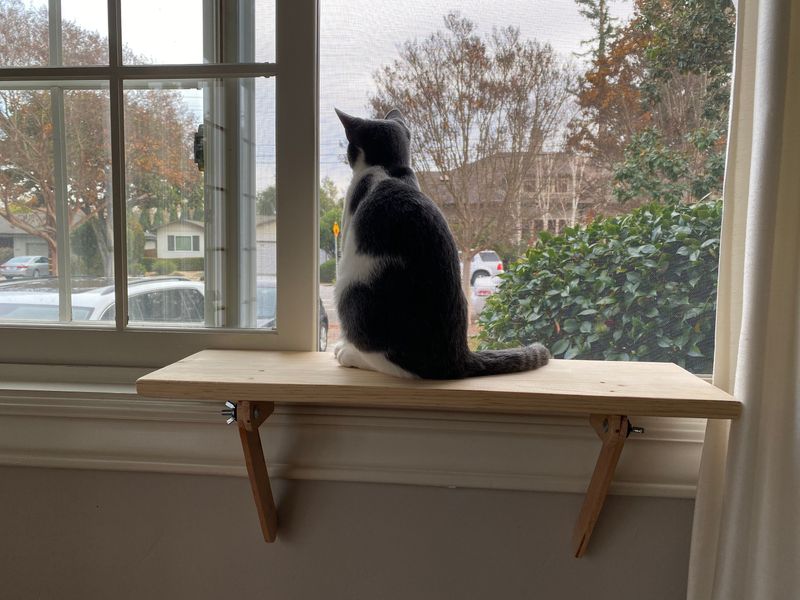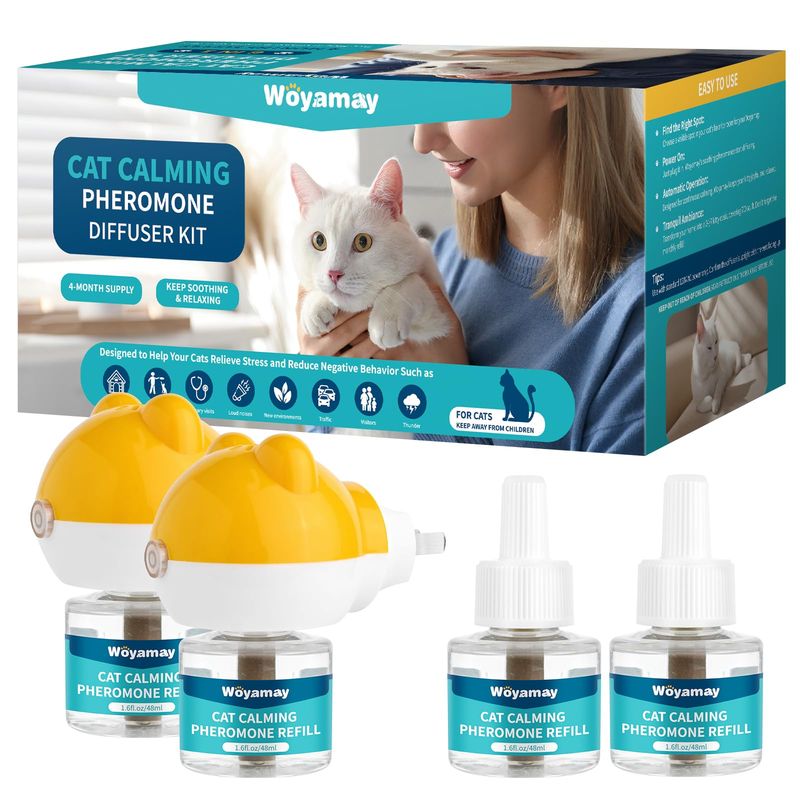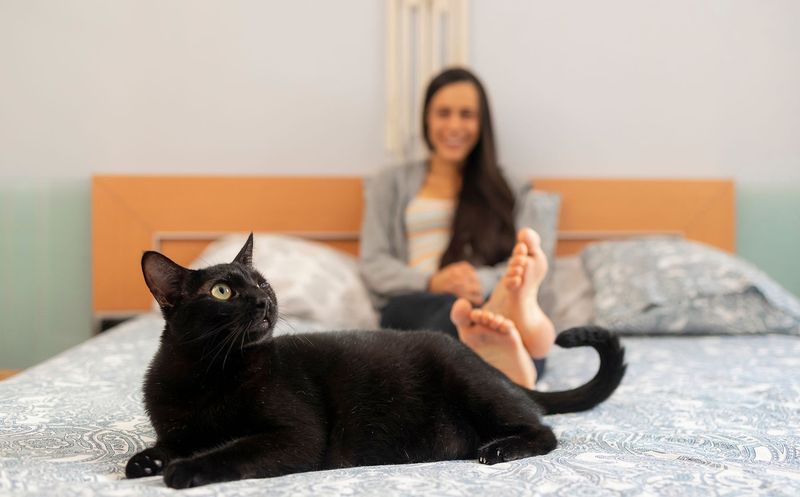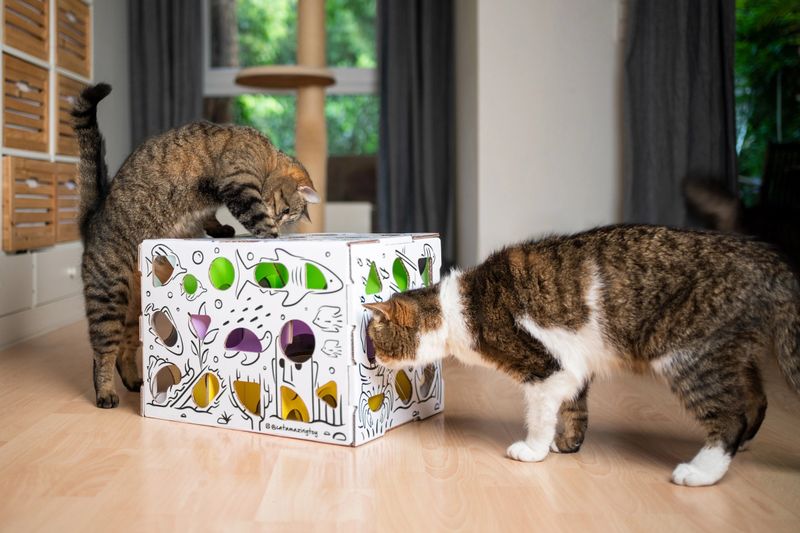📖 Table of Content:
Sensitive cats need extra care to feel secure and content in their environment. Some felines are naturally more timid or anxious due to genetics, past experiences, or health issues. Understanding how to create a comforting space for your delicate kitty can dramatically improve their quality of life and strengthen your bond with them.
1. Create a Cozy Hideaway Den
Cats love having their own private retreat where they can escape when feeling overwhelmed. A dedicated hiding spot with soft blankets provides security during stressful times like thunderstorms or when guests visit.
Look for enclosed cat beds, tunnels, or even repurpose a cardboard box with a small entrance. Place these hideaways in quiet corners away from household traffic.
The perfect hideaway should be in a location where your cat can still observe family activities from a safe distance. This balance helps anxious cats feel included without feeling exposed or vulnerable.
2. Set Up Elevated Resting Perches
Height equals safety in the feline world. Nervous cats feel more secure when they can observe their surroundings from above. Window perches, cat trees, or shelves mounted at different heights satisfy this natural instinct.
Strategic placement matters tremendously. Position these elevated spots near windows for entertainment or in rooms where you spend most of your time.
Ensure each perch has a non-slip surface and is sturdy enough to support jumping. Add familiar-smelling blankets to make these spots instantly appealing and comforting for your sensitive companion.
3. Maintain a Consistent Daily Routine
Fragile cats thrive on predictability. Regular feeding times, play sessions, and even consistent bathroom cleaning schedules help reduce anxiety. When cats know what to expect, they feel more in control of their environment.
Morning rituals particularly matter to cats. Try to wake up, feed, and interact with your cat at similar times each day. This consistency builds trust and security.
During necessary schedule changes, introduce modifications gradually. Small adjustments over several days are much less stressful than sudden shifts that can trigger anxiety or behavioral problems in sensitive felines.
4. Use Calming Pheromone Products
Synthetic feline pheromones mimic the natural comforting chemicals cats produce. Available as diffusers, sprays, and collars, these products create an invisible sense of security throughout your home.
Diffusers work best in areas where your cat spends most time. Place them in living rooms or bedrooms, avoiding hidden spots behind furniture where the vapor can’t circulate properly.
Results vary between cats, so patience is key. Some felines respond immediately while others may take weeks to show reduced anxiety. These products are especially effective during stressful events like moving, introducing new pets, or during thunderstorms.
5. Provide Gentle, Predictable Handling
Touch sensitivity varies dramatically among cats. Respect your fragile feline’s preferences by learning their comfort zones. Some prefer chin scratches while others enjoy gentle back strokes.
Body language tells you everything. Dilated pupils, flattened ears, or tail swishing indicate overstimulation. Stop immediately when you notice these signals.
Approach interactions on their terms. Let your cat initiate contact when possible, and keep handling sessions brief but frequent. This builds trust gradually without overwhelming your sensitive companion, creating a foundation for deeper bonding over time.
6. Create a Noise-Controlled Environment
Sudden or loud sounds can terrify sensitive cats. White noise machines near your cat’s favorite resting spots help mask startling household sounds like doorbells or kitchen appliances.
Sound absorption makes a noticeable difference. Soft furnishings like rugs, curtains, and fabric-covered furniture naturally dampen echoes and harsh noises that might otherwise trigger anxiety.
Family awareness matters tremendously. Teach children to move calmly around fragile cats and reduce volume on televisions and music systems. Creating designated quiet zones where loud activities are prohibited gives your nervous cat reliable sanctuaries throughout your home.
7. Offer Enrichment That Respects Boundaries
Emotionally sensitive cats benefit from gentle mental engagement. Toys they can explore solo—like puzzle feeders or motion-triggered gadgets—offer stimulation without demanding interaction. A window perch overlooking a bird feeder turns everyday sights into captivating “cat TV,” giving them entertainment from a safe, quiet distance.
Short, positive play sessions build confidence gradually. Use wand toys that allow your cat to maintain a comfortable distance while still engaging. Never force interaction – even five minutes of play on their terms builds more trust than longer sessions that cause stress.

